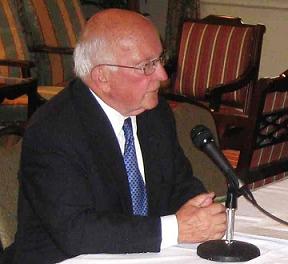NATO’s Kosovo War, 11 Years Later

Eleven years ago NATO opened its bombing campaign against Serbia, illegally and without provocation. It started on March 24, 1999, and continued for 78 days and nights. It was the most intensive air offensive suffered by any country since the end of the Second World War.
Over a thousand people were killed and the civilian infrastructure of Serbia was destroyed, but it proved unable to degrade the Serbian military.
It caused far more suffering than it prevented. For the first time since its founding the North Atlantic Alliance, led by the United States, acted in violation of its own treaty and the United Nations Charter by using violence to resolve an international dispute.
This illegal act marked a historical turning point and was a fatal step in dismantling the framework of peace and security that had governed international relations since the end of the Second World War.
It set precedents that will continue to plague international affairs for years. The bombing also revealed a disturbing reality that has continued to haunt us: the ease with which our democratic countries can be led into committing acts of violence and war by political leaders prepared to tell us lies.
President Clinton, Prime Minister Blair and other NATO leaders told their citizens that the bombing of Serbia was a humanitarian intervention to stop President Milosevic of Serbia from committing genocide and the ethnic cleansing of the Albanian majority in Kosovo.
This of course was not true: forensic times have found some 2,000 victims of the Kosovo conflict so far – Serbian and Albanian, civilian and military – who had been killed prior to NATO’s air war in March 1999. Distressing as this figure may be, it is not genocide. Nevertheless, the accusations that genocide took place in Kosovo continue to be accepted without hesitation by the western media.
The claim about ethnic cleansing was also a falsehood. While it is true that several thousand Albanians had been displaced within Kosovo by the armed conflict between the Serb security forces and the Kosovo Liberation Army (KLA), the large-scale exodus of the Albanian population occurred after the bombing started.
United Nations figures show that the mass of refugees fled Kosovo after the first bombs began to fall In other words, it was the bombing that caused the flight from Kosovo. Despite the proof of this we continue to hear in the western media that the NATO bombing “stopped ethnic cleansing.”
In reality the bombing of Serbia had nothing to do with genocide or ethnic cleansing. The bombing had everything to do with demonstrating that NATO was still a viable military organization and was needed in Europe. There is ample evidence now to show that the United States and British secret services aided and abetted the KLA in its efforts to use violence to destabilize Kosovo and to create the excuse for NATO intervention.
The Kosovo crisis and the 78 day bombing campaign against Serbia was from the outset a carefully planned fraud.
Because bombing people for humanitarian reasons was an obvious contradiction, it had to be portrayed as an urgently needed rescue mission to stop the “genocide” that was allegedly taking place in Kosovo.
This was done by a highly organized publicity campaign designed to deceive a compliant media and a gullible public that Milosevic was evil and that the Serbs were barbarians who had to be stopped. Hailed as the man who brought the Bosnian war to a conclusion at Dayton four years earlier, he was now depicted as the “butcher of the Balkans” and conveniently charged by the Hague War Crimes Tribunal as a war criminal. The duplicity and the deception which reached their height during the bombing itself has continued to this day.
The subsequent policies followed by the United States and its NATO allies have not only continued to be based on falsehood and hypocrisy, but also continue to pose a threat to world peace and security.
The heart of the problem has been what appears to be a determination of the United States policy makers, whether Democrat or Republican, to look upon the Western Balkans as their special fiefdom where international rules of conduct do not apply.
It is as if they regard these Slavic lands as lesser breeds without the law, and therefore can do with them whatever they deem desirable. This hubris has lead the United States and the obedient but morally bankrupt leaders of Germany, France and Great Britain to follow wrong-headed policies such as the bombing of Serbia and the recognition of Kosovo independence – and to do so without scruples.
Perhaps it is too much to hope for that the critical financial problems faced by the United States and many European countries will curtail their meddling in the affairs of smaller nations and give them pause to reflect that the rule of law applies to all and that international disputes must be resolved without the use of force. This is the hope – however tenuous – expressed by our Foundation’s members, friends and associates on the eleventh anniversary of the bombing of Serbia.

